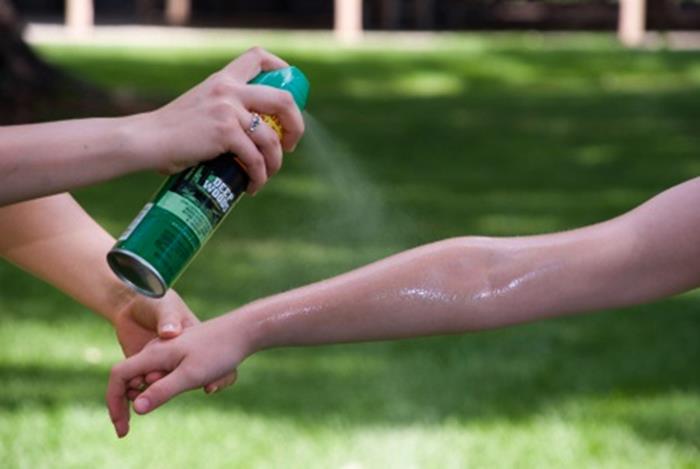Mosquito repellents are natural and synthetic chemical compounds that are applied to skin, clothing, and sometimes home furnishings such as bed nets. For years, they have been an important defense against mosquito-borne diseases, such as Dengue fever, malaria, and West Nile virus, and most recently Zika virus. See also: Diptera; Insect diseases; Insecticide; Malaria; Mosquito: vector of disease; West Nile virus; Zika virus disease

Mosquitos and other insects have odor-sensing receptors on antennae. When female mosquitoes that feed on humans detect attractive chemicals, such as carbon dioxide, lactic acid, and octenol, they target the host and land for a blood meal. Insect repellents, such as DEET (N,N-diethyl-meta-toluamide), act as a molecular camouflage; that is, the attractant is detected (sensed) by the mosquito’s odor receptors but is obscured by the repellent, confusing the insect. Other effective mosquito repellants appear to work by this mechanism as well. See also: Blood; Carbon dioxide; Lactate
Because not all commercially available mosquito repellants are effective, the U.S. Food and Drug Administration (FDA) recommends using products that contain active ingredients registered by the U.S. Environmental Protection Agency (EPA) and that you read the label for active ingredients, application instructions, protection time, and warnings. In addition, the concentration of the active ingredients matters. Products containing less than 10 percent of an active ingredient have limited effectiveness times (about one or two hours), while concentrations above 50 percent do not appear to increase the protection time.
EPA-registered active ingredients for mosquito repellents include DEET, picaridin [2-(2-hydroxyethyl)-1-methylpropylester], IR3535 (ethyl 3-[acetyl(butyl)amino]propanoate), 2-undecanone (methyl nonyl ketone), and oil of lemon eucalyptus (para-menthane-3,8-diol). The oil of lemon eucalyptus used in repellents is a synthetic compound. The natural form of the product is not registered with the EPA or considered to be an effective repellent. However, oil of lemon eucalyptus and IR3535 are considered biopesticide repellents because they are derived from natural materials. Permethrin, a repellent and insecticide, is registered for use on clothing, shoes, bed nets, and camping gear.





